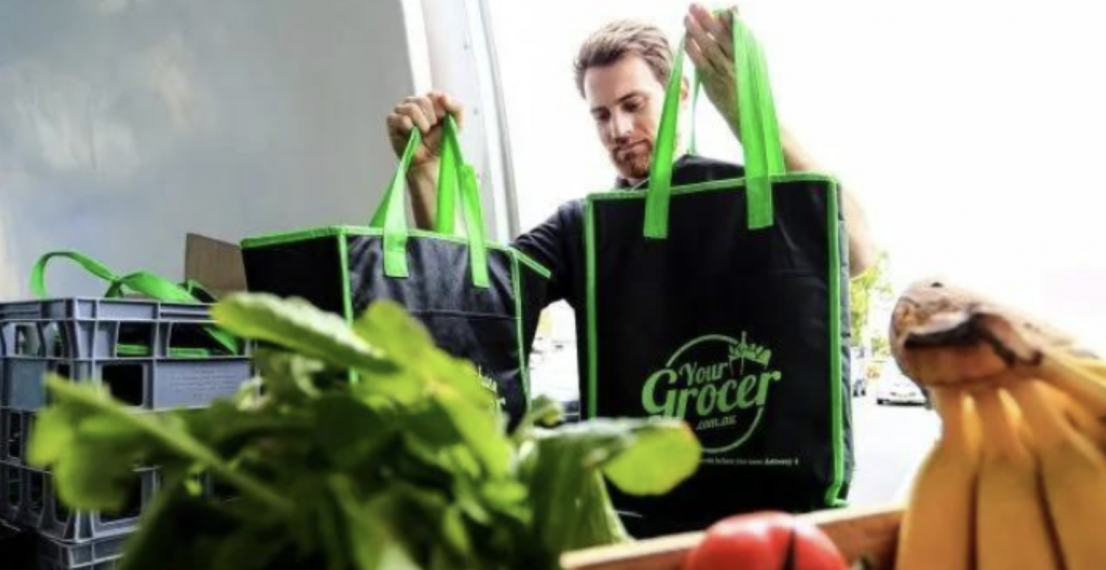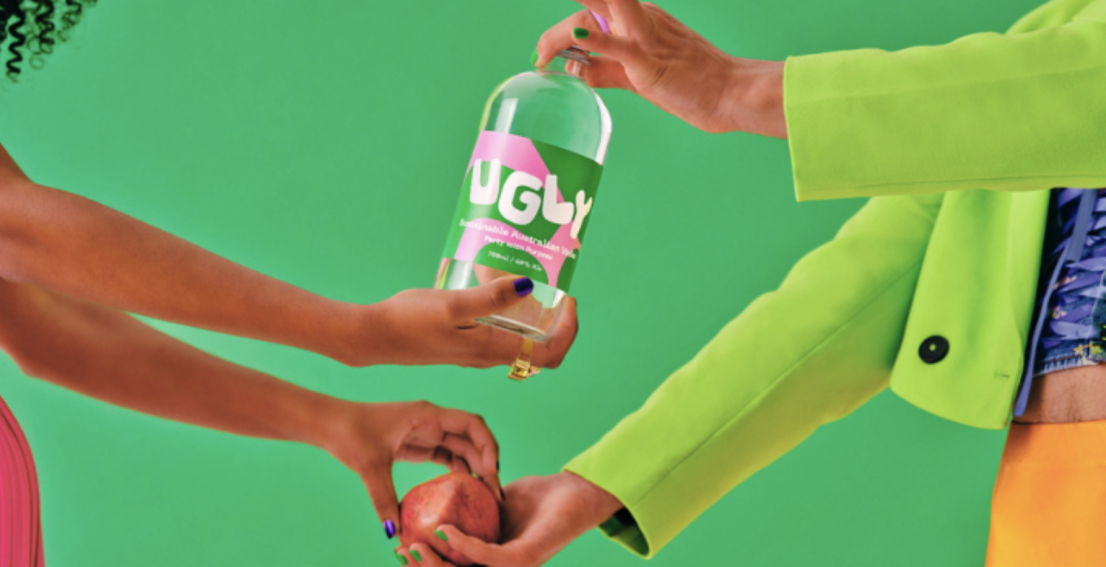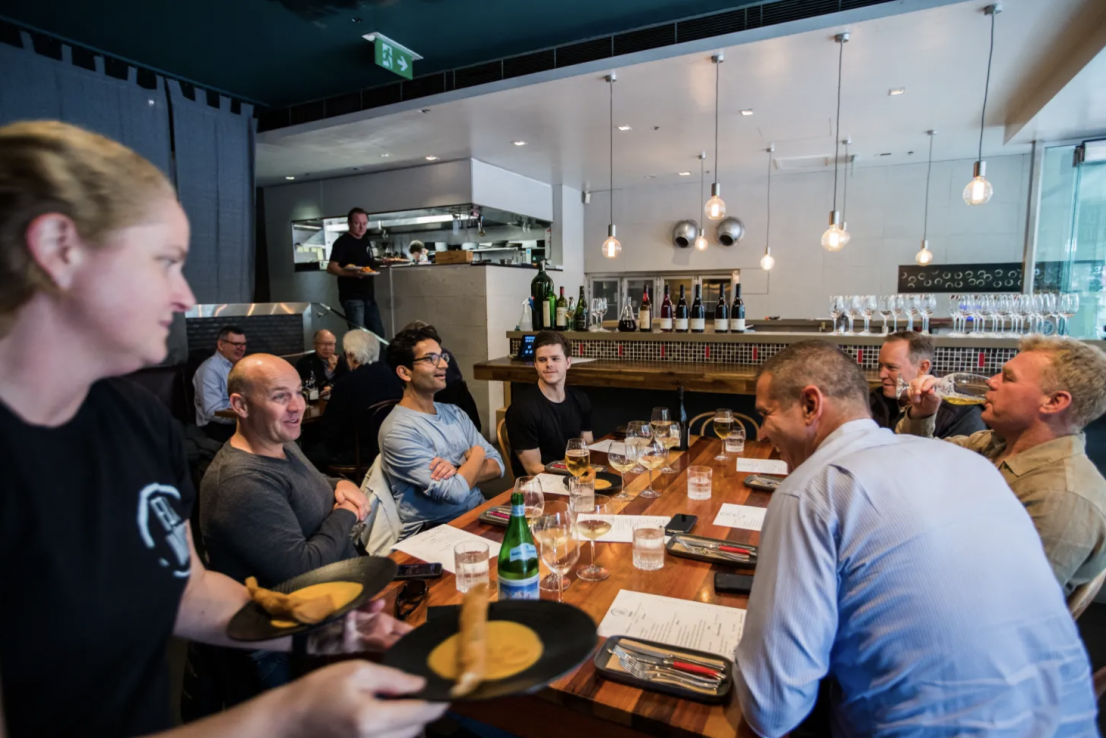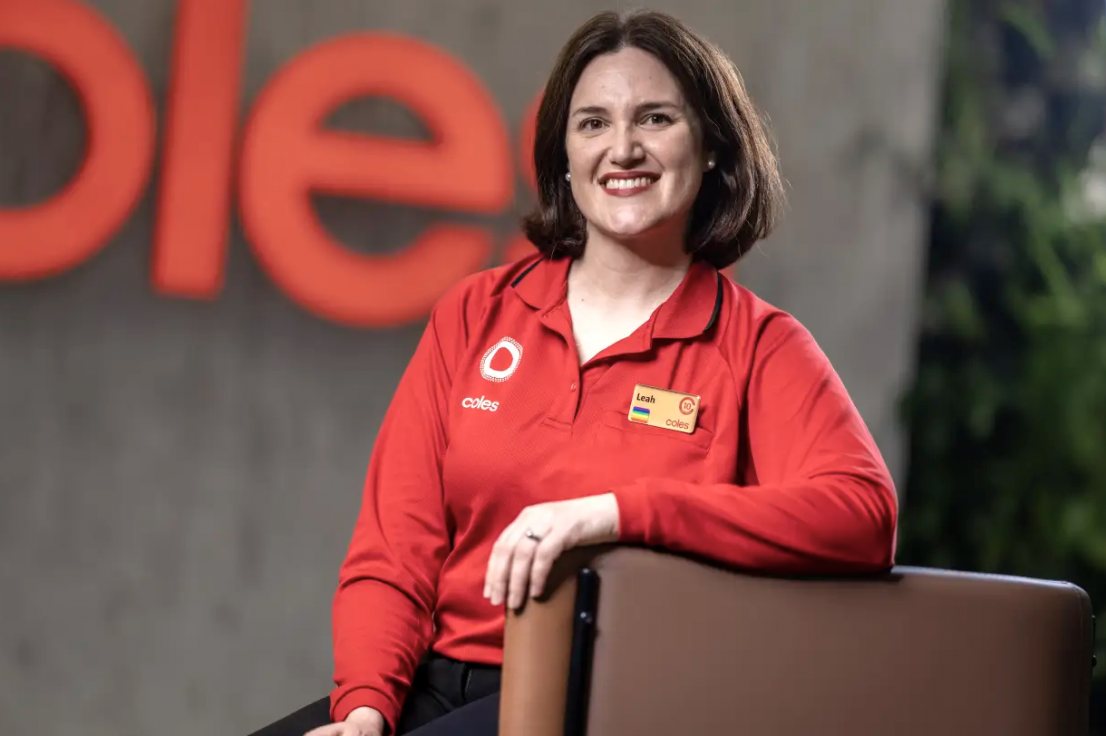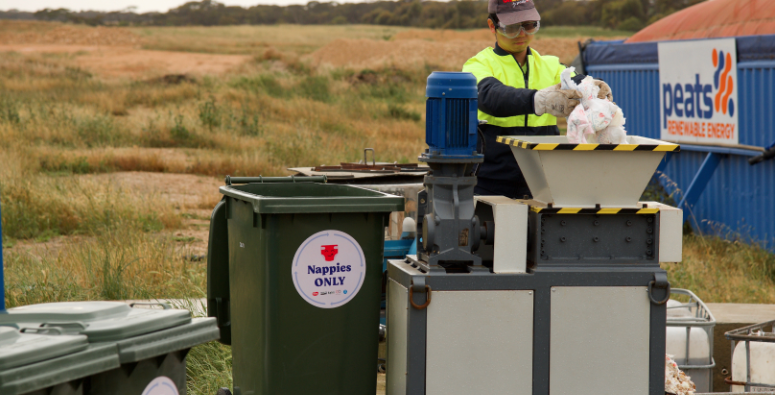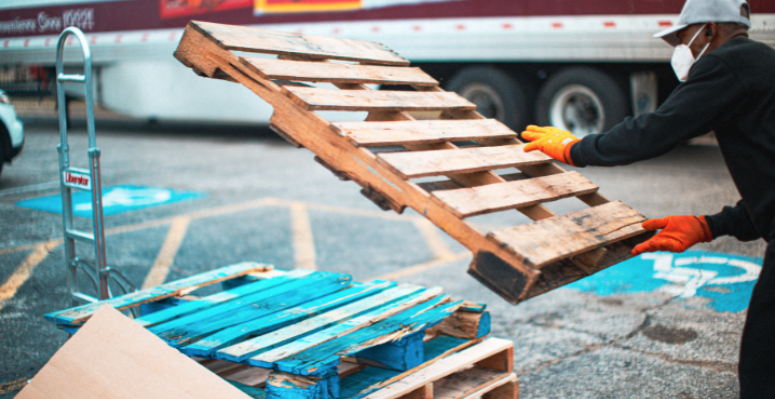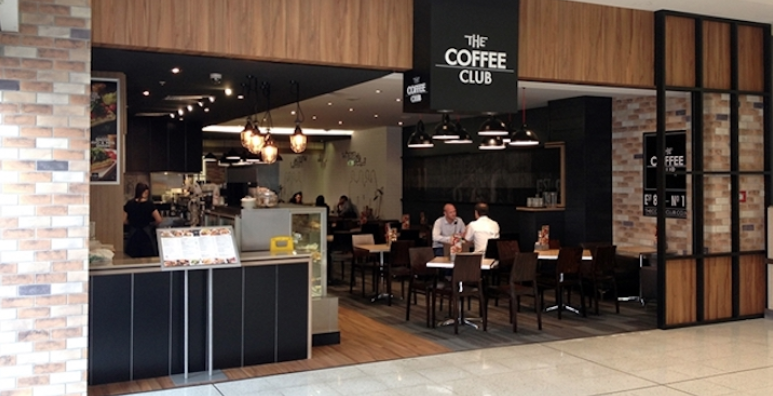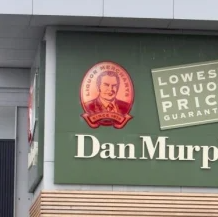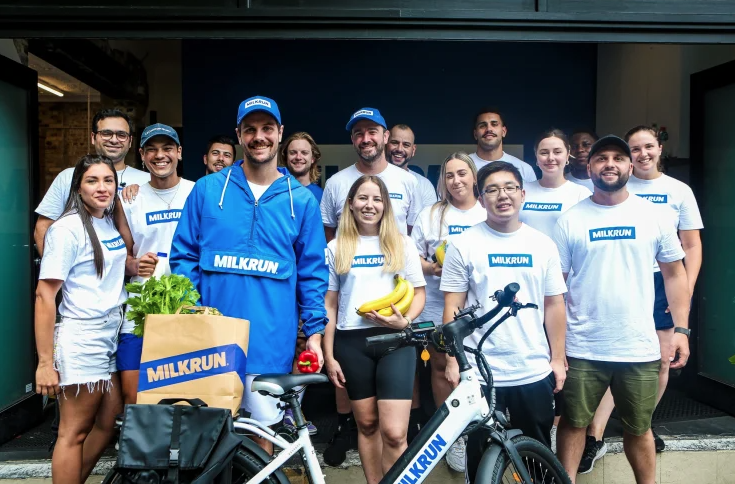When former McKinsey & Co managing partner John Lydon got a call from then head of Coles Group Ian McLeod in late 2011, his heart sank.
That’s when he realised a rising star in the consulting firm, Leah Weckert, was leaving to take up a senior role at the supermarket chain backed by Wesfarmers, which was in turnaround mode and working towards an eventual spinout.
Lydon called the moment “bittersweet” when the woman whom he first met when she was just 22 years old, and helped to mentor years later, was leaving.
“Leah is someone who could have been definitely a partner in no time, but she also could have run the whole practice, and yet I just knew as soon as I was speaking to Ian ... she was going to leave because it’s just an amazing opportunity to be part of that turnaround,” Lydon tells AFR Weekend.
“She could have done really well at McKinsey, but I was so happy she was going there (to Coles) because I thought you know what, I bet she’ll be CEO of Coles one day.”
The 43-year-old mother of two has a hugely demanding role at Coles as chief executive, commercial & express, which she has held since April.
The breadth and depth of the remit has put her among the candidates to eventually succeed her boss, Steven Cain, who is heading into his fifth year as CEO in 2023.
Weckert doesn’t shy away from her ambition. In fact, being a company CEO was on her job list since she was a child.
“I still would love to have the opportunity to be a CEO of a significant Australian company at some point in the future,” she says, when asked about future career plans.
If successful in snaring the top job she would be the first woman in Coles’ more than 100-year history to run the company.
Weckert is the only woman on the executive leadership team with direct profit and loss responsibility. While she was intimately involved in the recent sale of the Coles Express fuel network to Viva Energy, she has also been looking after all the marketing across the group (the chief marketing officer left in September), in addition to her other jobs which span store and product development and merchandising.
She also makes the final call on price rises coming through from suppliers battling increased costs across their businesses, putting her at the heart of the story of Australia’s rampant inflation.
Weckert confirms there are still elevated numbers of price rise requests from suppliers.
“Do I think we’ve reached the peak? Maybe, but are we going to come off that peak any time soon? I think there’s a little bit more time to run,” she says.
According to the latest UBS Evidence Lab’s grocery price study, which tracks more than 60,000 prices across Coles and rival Woolworths, food inflation in November averaged 9.1 per cent, in line with October, and well above the 8.2 per cent hit in the first quarter.
Country girl at heart
Retail is in Weckert’s blood. She grew up in Adelaide where her father owned a grain and fodder store. The small shop sold hay and live chickens. As a kid, she would help out on Saturdays, mixing up the bird seed, doing chores around the store, and at the end of the day balancing the till – her favourite part. Her mother was a primary school teacher.
At 14, her first job outside the family store was working as a pharmacy assistant, which carried her through high school and university where she studied chemical engineering. Later she completed an MBA at Harvard as part of a McKinsey fellowship program.
“In many ways I grew up working in retail and developed that road map of serving customers and directly curating products and being proud about how the shop looked. I guess maybe that’s never left me,” she says.
“Even though I studied chemistry and science, when I went to McKinsey, I got to try all those different industries and I always found that I gravitated back to consumer goods and retail.”
Weckert dreamed of being a CEO or an astronaut or professional flautist, but also she admits her youth was not easy: for the first time publicly she tells AFR Weekend of the pain of being diagnosed with scoliosis as a teenager and having to wear a fibreglass body brace throughout high school.
“Many things were not opportunities for me. I could barely do sport, and socially it was difficult, so I had to find other ways to find joy,” she says.
Weckert turned to music, where she played flute in orchestras, and also spent time in international science camps.
“The strength to get through this, you carry that with you then going forward. I think this has been quite pivotal in terms of who I have become,” she says.
“It has enabled me to develop an enormous amount of resilience throughout my career. It puts a lot of different things in perspective around what’s important in life.”
She adds that because she was treated differently due to her brace, it is her mission to accept every individual for who they are, and find what they can contribute.
Heading to Coles
Her first role at the supermarket chain in 2011 was in merchandising, before she moved to the private label division where she was responsible for sourcing and quality. She then spent a year running the Victorian operations of 204 supermarkets, where she was suddenly in charge of more than 23,000 people, $7 billion in sales and $450 million-odd in earnings.
Her first executive leadership role was director of people and culture in 2017. About a year later, days before Coles demerged from Wesfarmers, Weckert took the group CFO role – despite not having a background in accounting – where she spent four years.
In between she had two children. She has done it all – except the top job.
Weckert is clear the best part of her role is driving value for shoppers. Creating healthy family eating options or working on sustainability initiatives are also priorities, she says.
Australia’s major supermarket chains are engaged in a delicate balancing act as food prices rise at the fastest pace in decades, adding to pressure on household budgets.
Global supply chain disruption, the impact of climate change on the agricultural sector and soaring energy and grain prices due to the Russia-Ukraine war are reasons for soaring food prices.
Coles’ supermarket earnings rose to $1.7 billion in 2022 compared with $1.19 billion in 2019, while Woolworths’ Australian food earnings rose to $2.42 billion in 2022 from $1.86 billion 2019. So far, no one has accused Coles, or rivals, of profiteering during the pandemic despite the strong rise in earnings.
Weckert says inflation is on her mind every day, and some consumers are shifting their shopping to cheaper brands and buying more canned goods and pasta. She helped drive Coles’ Locked and Dropped program.
Early career
Long before Coles, Weckert started her career as a business analyst at McKinsey in 2002. Three years later she left to have a stint as head of strategy and business development at Foster’s Group. She then moved to Massachusetts to complete her MBA at Harvard, and in 2008 circled back to McKinsey.
She was not your average consultant, who often operate as an expert in a field but have trouble moving across to new sectors. While at McKinsey, she provided complex advice to a major Australian miner in 2009, using her skills honed in retail when Coles was her client.
In Lydon’s eyes, this deployment in an unfamiliar mining environment made her a “superstar”.
Words like calm, savvy, smart and determined come up often when talking to previous work colleagues.
It is clear that Weckert has not only a sharp mind, coming up with the big plans and solutions, but she loves getting into the details. Over the past decade at Coles, she has learned to pick when she rolls up her sleeves.
“It would be just impossible to be across every detail of what is happening in my team. I have a fantastic leadership team who I know are very capable, and I trust,” she says. “That is absolutely critical in this role.”
Doing it all
Weckert is time-poor, and outside of family, admits her guilty pleasure is watching period drama such as The Spanish Princess (about Catherine of Aragon).
She has strict personal boundaries – not an easy task in today’s digital world. Her rule is one hour a day, one day every week. This means for one hour every day there are no calls for work or being a mum. She also protects Saturdays, putting her work phone in a drawer, to focus on family. The last rule is getting help around the house with the kids.
Looking back, she feels fortunate that leaders in the business have taken risks on her. There have been many who have championed her over the years, including Coles chairman James Graham, former Coles boss John Durkin and John Lydon.
The latter says there’s nothing better than meeting Weckert for a cup of coffee or glass of wine.
“We have a great conversation, and she just has that human touch that could be with the chairman of the board, or somebody on the checkout or stacking shelves at Coles, and that’s absolutely beautiful,” Lydon says.
